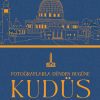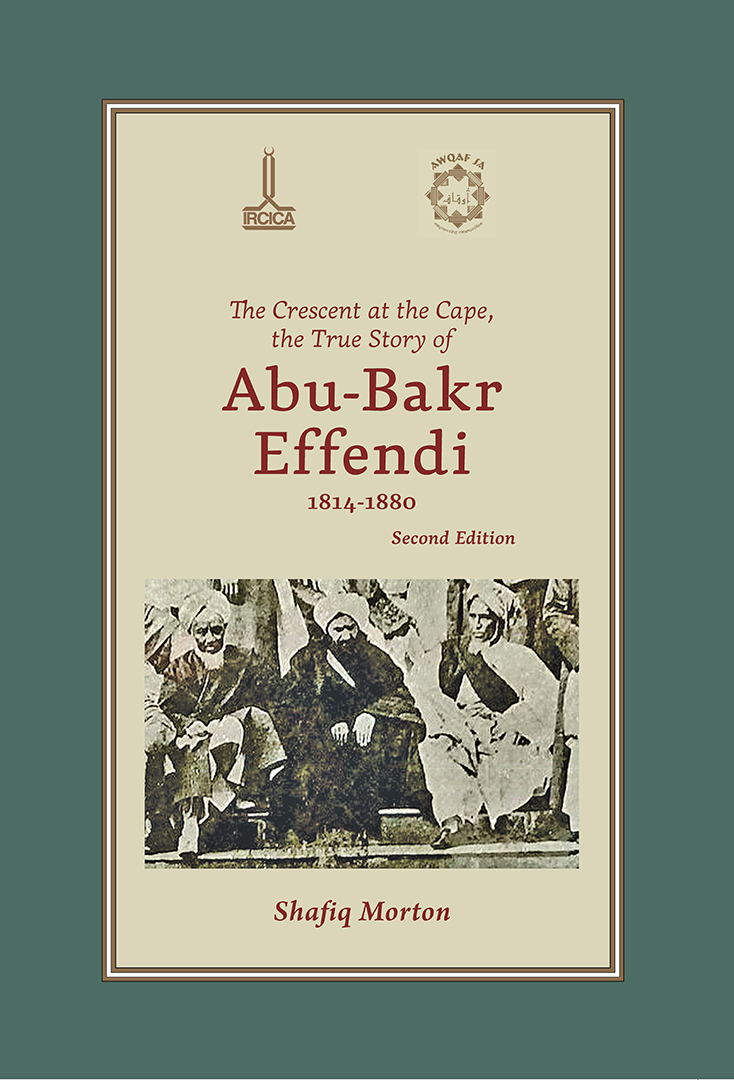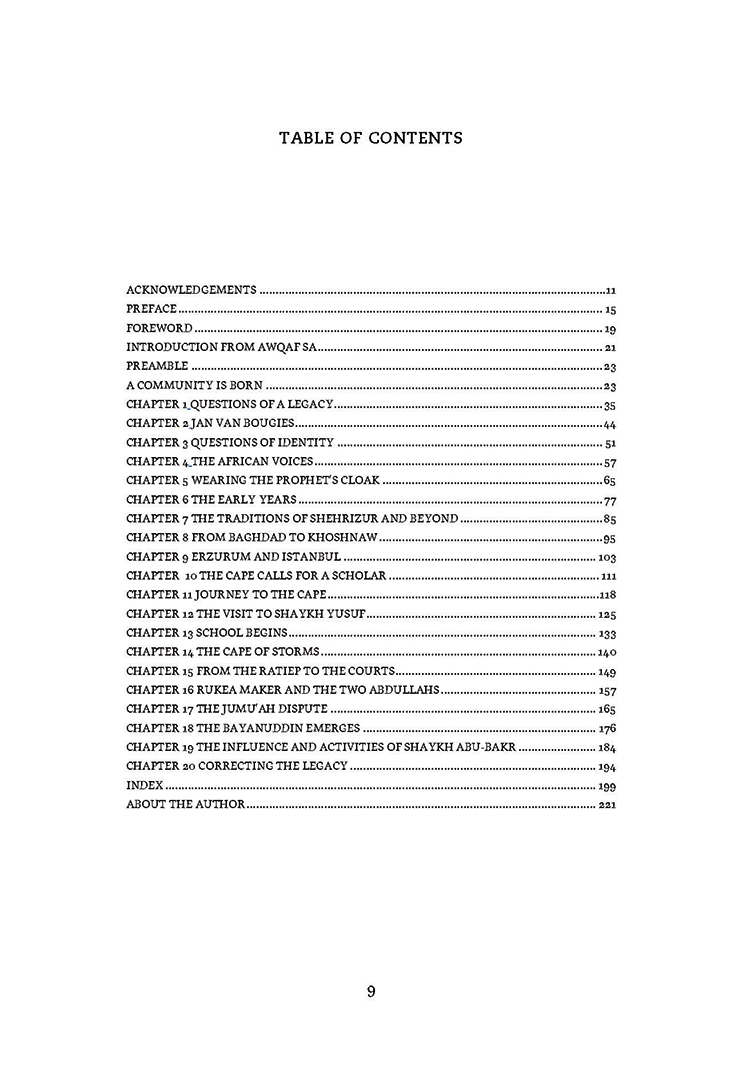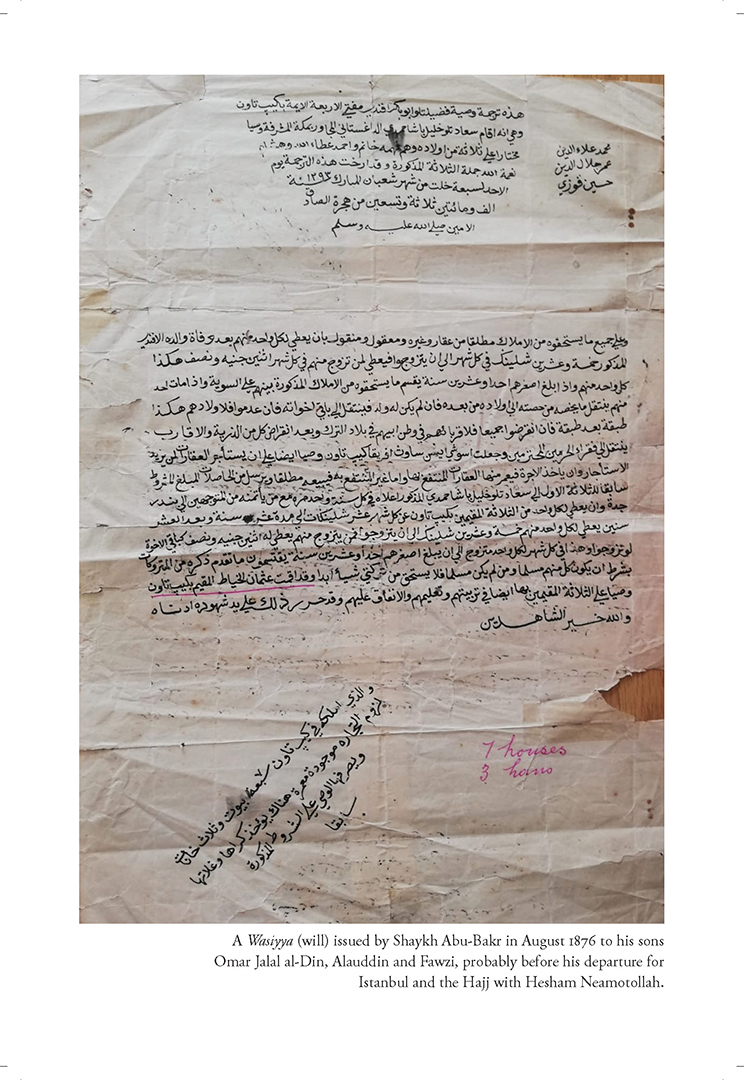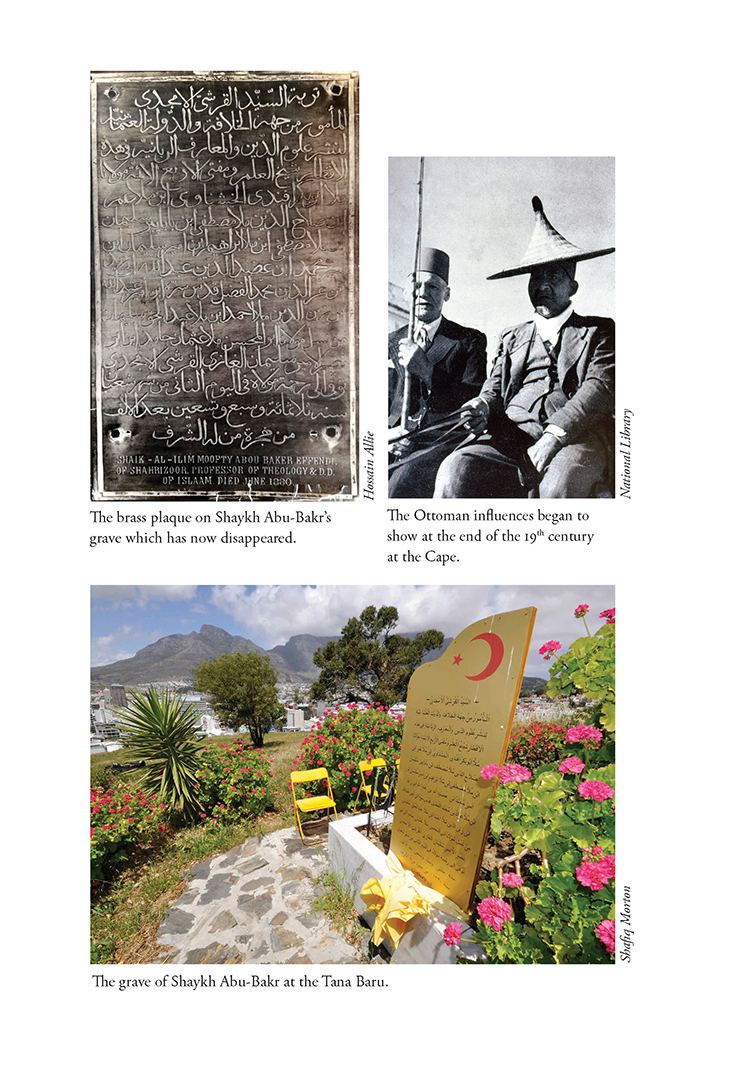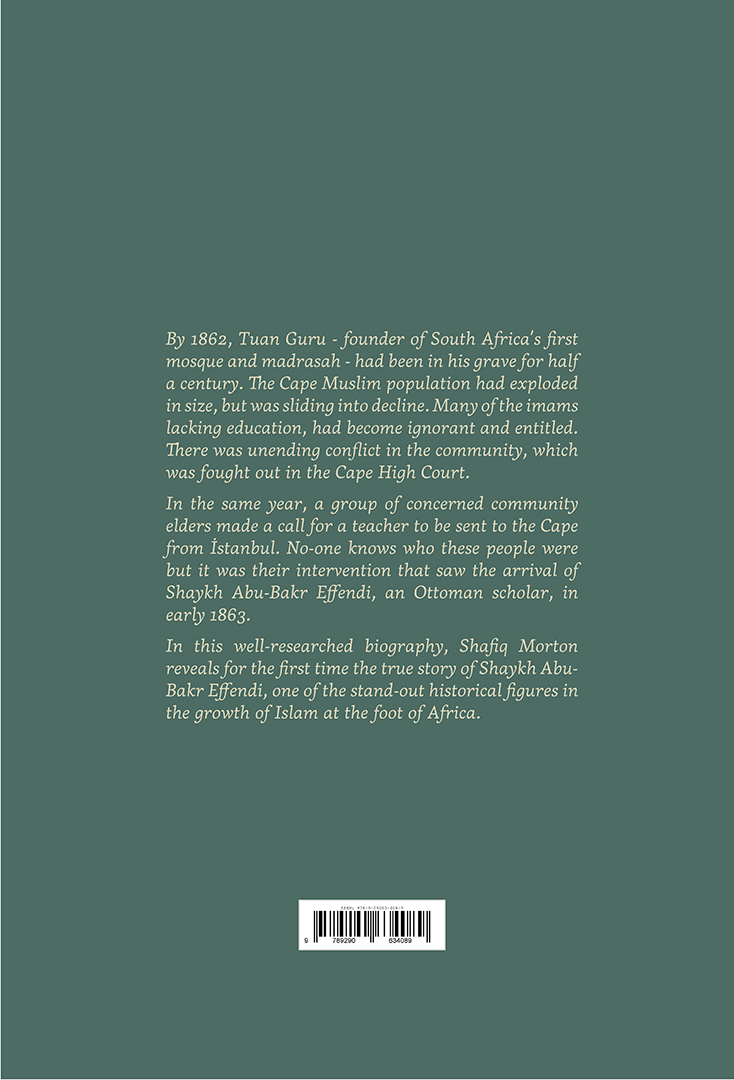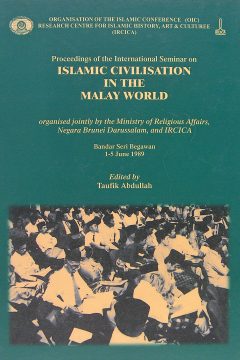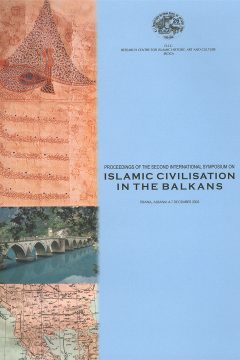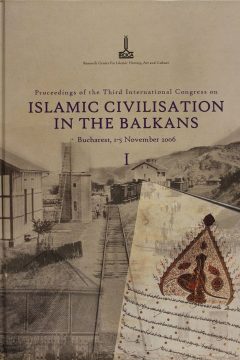Abu-Bakr Effendi (d. 1880), an Ottoman religious scholar, was appointed by the Sultan Abdūlazīz to the Cape (1278H/1862) on invitation, to instruct Muslims in Southern Africa on religious matters. Abu-Bakr Effendi never left the region until the end of his life except one visit to Istanbul, dedicating himself entirely to the religious and educational needs of the Muslim community. He established theological schools at Cape Town; taught the Qur’an to young and adult students together with his assistant Ömer Lütfi; gave lectures on Qur’anic exegesis, theology and jurisprudence, as well as Arabic and Turkish language courses. He was held in great esteem by the Muslims as an authoritative scholar consulted on religious issues. His guidance helped to strengthen Muslims’ communal solidarity. Abu-Bakr Effendi also contributed to enriching the religious literature available to Muslims in the region. Most famous among his eight works is Beyānū’d-dīn, a book composed in Arabic with outlines in the Afrikaans language written in Arabic script, which is considered a linguistic success for its time. Copies of this book are preserved in the museums of South Africa; some of his written correspondence is also accessible in the archives.
Dr. Shafiq Morton, a leading editor and historian of Southern Africa, wrote the interesting story of Abu-Bakr Effendi on the basis of ample first-hand sources, personal narratives, and abundant literature surveys. The first edition of the valuable book was launched jointly by the Awqaf Foundation of South Africa (Awqaf SA) and IRCICA during the International Symposium on “Islamic Civilization in Southern Africa: History, Contemporary Situation and Future Perspectives, Specially Dedicated to the Muslim Leaders Including Abu-Bakr Effendi and Imam Abdullah Haron” organized on 16-18 September 2022 in Cape Town. The second edition has the Preface of Prof. Mahmud Erol Kılıç and the Foreword of Dr. Selim Argun, Vice-President of Religious Affairs in Türkiye. It is a rich reference on the life and activities of the scholar and the surrounding history of the Muslim community in South Africa in the 19th century.

